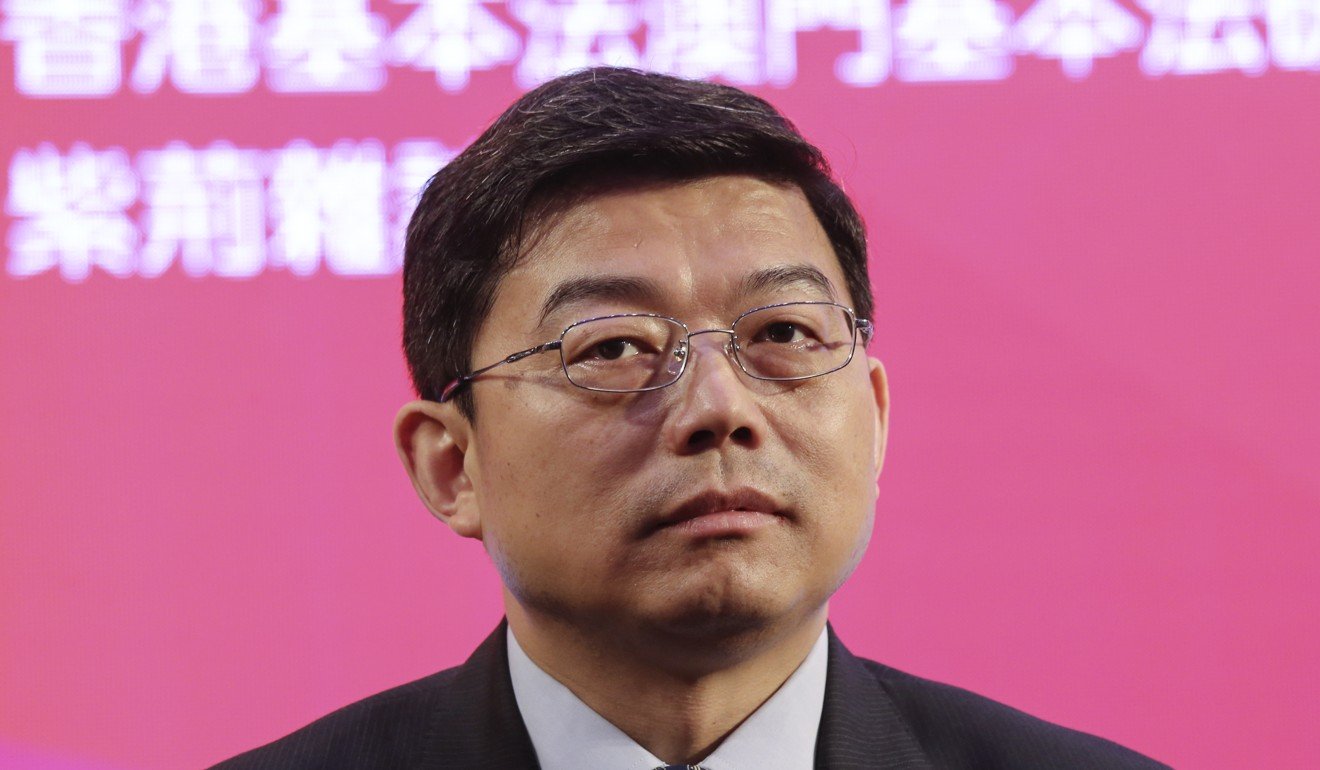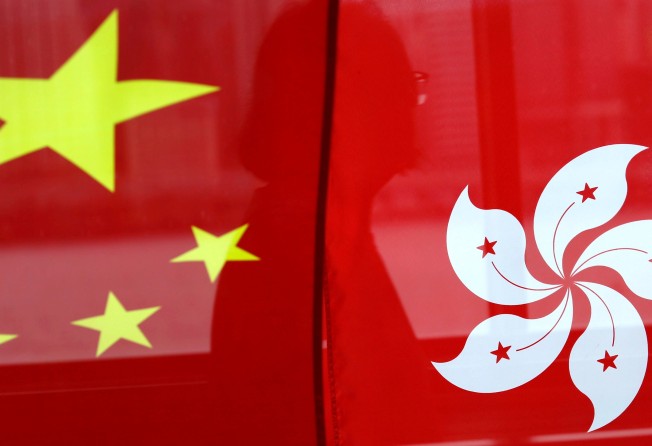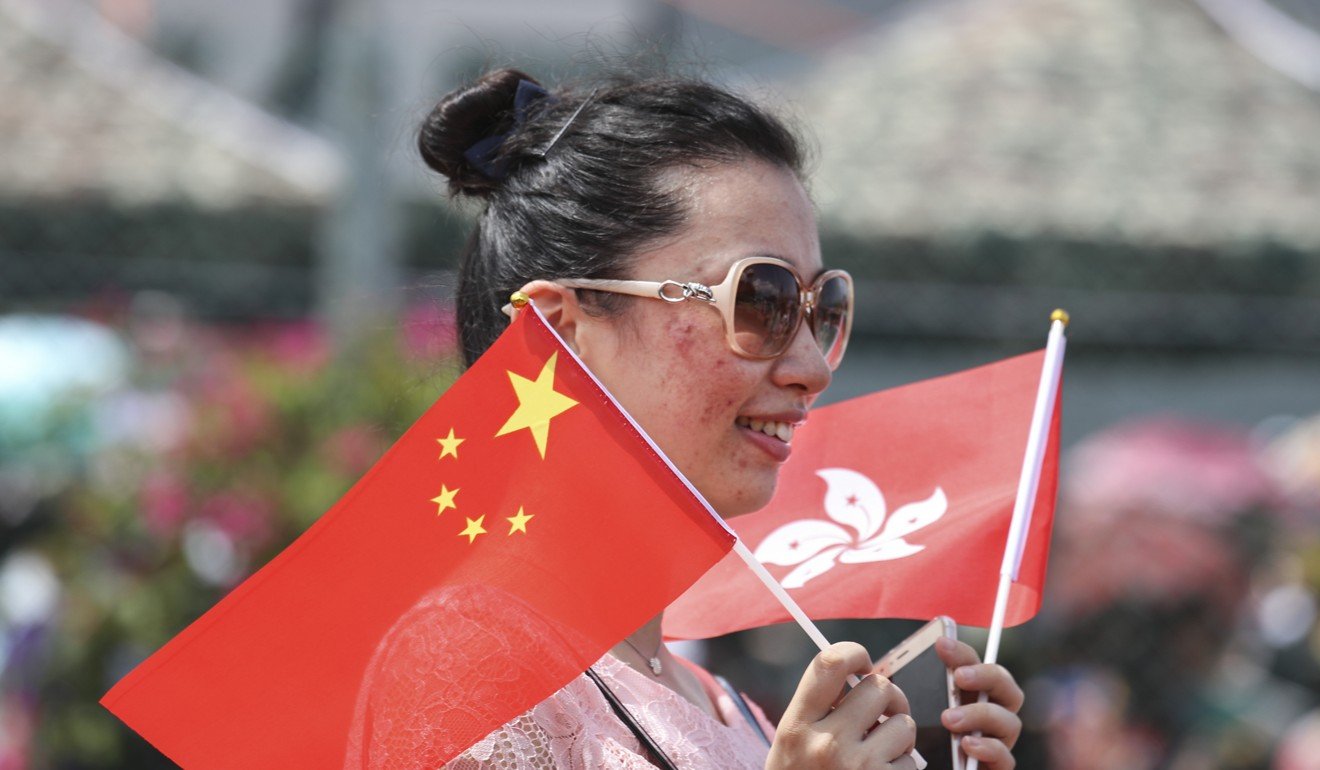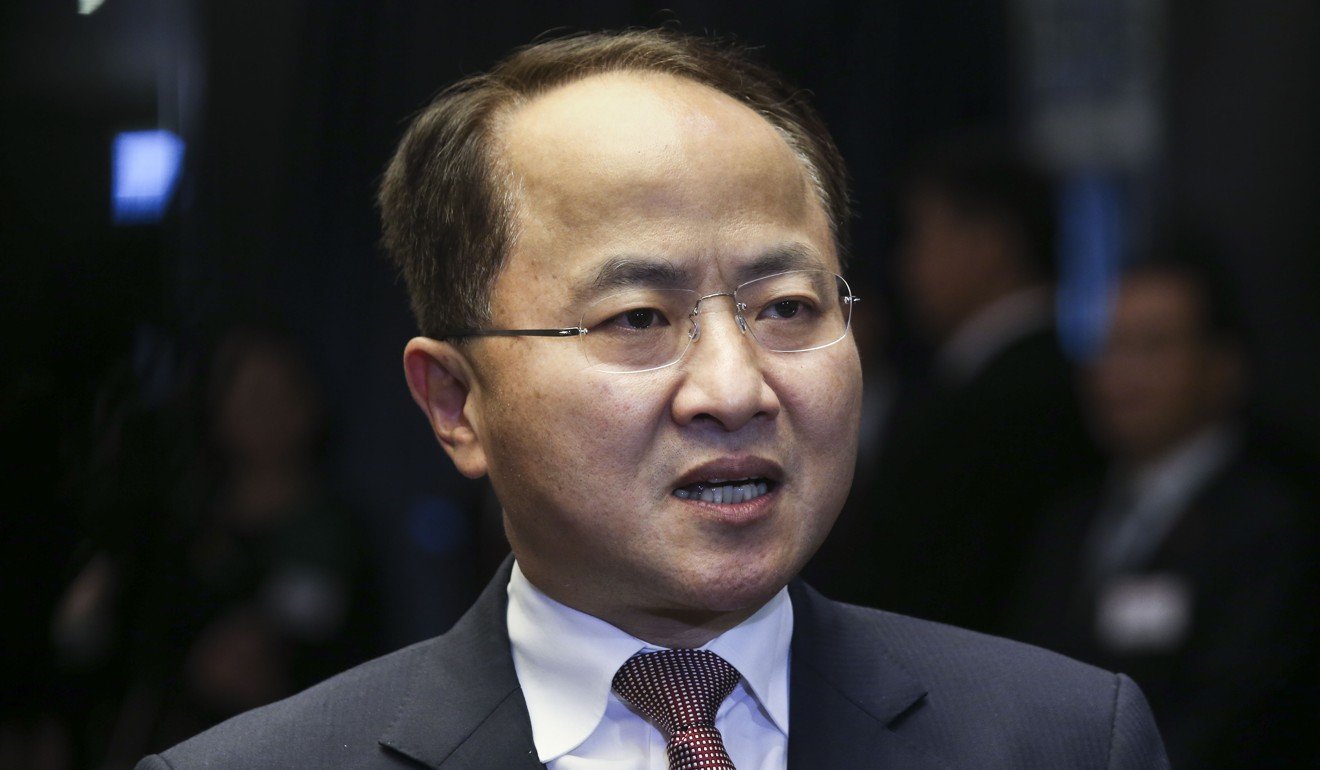
Hong Kong must accept it is part of ‘red China’ and led by Communist Party, liaison office legal head says
Wang Zhenmin says China’s constitution and Hong Kong’s mini-constitution have ‘mother-son relationship’ in law

Hongkongers cannot cherry-pick their national identity and say they accept the city is part of China but reject the Chinese Communist Party leadership as such a stance is against the country’s constitution, the legal head of Beijing’s liaison office in Hong Kong argued on Monday.
Wang Zhenmin urged the city to recognise that it is part of “red China” and is invested in the future of the Communist Party, as the leadership of the ruling party is a core part of the constitution.
He was speaking at the launch of a forum to mark National Constitution Day, a commemorative event held for the first time in the city.

Taking an unprecedented move to talk about the Communist Party, a subject Beijing’s officials in the city had rarely touched on previously, Wang sought to explain the link between the city and the party leadership, making comments likely to stir debate among the political elite and attract criticism from the pan-democrats.
He began by first noting that the constitution was the basis of the country’s sovereignty and also the foundation for the “one country, two systems” principle, under which Hong Kong is given a high degree of autonomy.
Apart from these obvious aspects of the constitution, Wang said a core part was also the endorsement of the leadership of the party.
“We cannot say the Chinese Communist Party is the world’s largest ruling party but it is irrelevant to Hong Kong and Macau,” he said.
“From the angle of the world’s political map, Hong Kong’s political colour had been undoubtedly changed to red since its return to Chinese sovereignty on July 1, 1997,” he said.
“That meant it had became part of red China.”
“Call a spade a spade,” Wang said, citing the English idiom.
Wang said some Hongkongers had asked if they could accept the city was part of the country but wanted to reject the leadership of the Communist Party.
“I think there is no way to separate China from the Chinese Communist Party, as the nation was led and established by the Chinese Communist Party,” he said.
Thus, the fate of Hong Kong is closely linked with that of the party, just as relations between Hong Kong and China are tied inextricably, he argued.

Wang’s comments run contrary to the slogans of “end one-party rule” often chanted by attendees at the annual candlelit vigil to commemorate China’s 1989 Tiananmen crackdown on June 4.
On the relevance of the constitution to the city, not only in defining the leadership, Wang said the constitution had not only a symbolic but also substantive effect on the city, as the authority of the Basic Law, the city’s mini-constitution was drawn from it.
The constitution and the Basic Law had a “mother-son” relationship in law, he said, stressing that the constitution applied to Hong Kong without needing to be added in Annex III of the Basic Law.

To mark National Constitution Day, Wang Zhenmin’s boss, liaison office director Wang Zhimin, wrote an article for the official website.
He highlighted Article 1 of the constitution, which stipulates that “the socialist system is the basic system of the People’s Republic of China. Disruption of the socialist state by any organisation or individual is prohibited”.
“Although Hong Kong does not apply the socialist system, it must respect and recognise that the state body implements the socialist system according to the constitution,” he added.
“It must respect and recognise the important state system and institutions, such as the leadership of the Chinese Communist Party and the [National] People’s Congress as the constitution stipulated.”